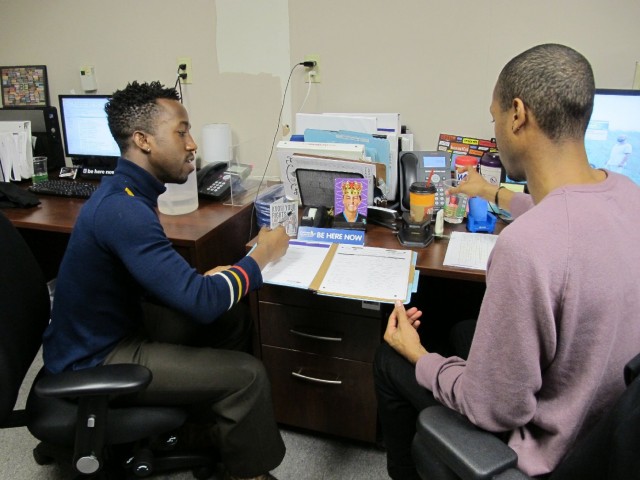
Editor's Note: Lack of health insurance isn't the only barrier to getting medical care. The stigma and fear around HIV can keep people from seeking help. As part of our ongoing health series Vital Signs, we hear from Lenworth Poyser. He was homeless and living with HIV. Now, Poyser helps young HIV-positive men support each other through a group at Children’s Hospital Los Angeles.
By Lenworth Poyser
When I first came out, when I was still in Texas, I left my mother’s house. At the time I was 18. What she was basically saying is: You can be in this house, just don't be gay in this house. And I couldn't do it. So, I threw my clothes into a trash bag and got out.
My sister had invited me to move out to L.A., move out to L.A. And, when HIV hit, I was like, "Oh, life is too short." So, I decided to just do it.
I do want to sing. And I also knew there were lots of opportunities for people who are positive out here, versus in Texas. But after about 3 months, I still could not find a job. I was kind of just sleeping with friends and stuff like that. Like house hopping.